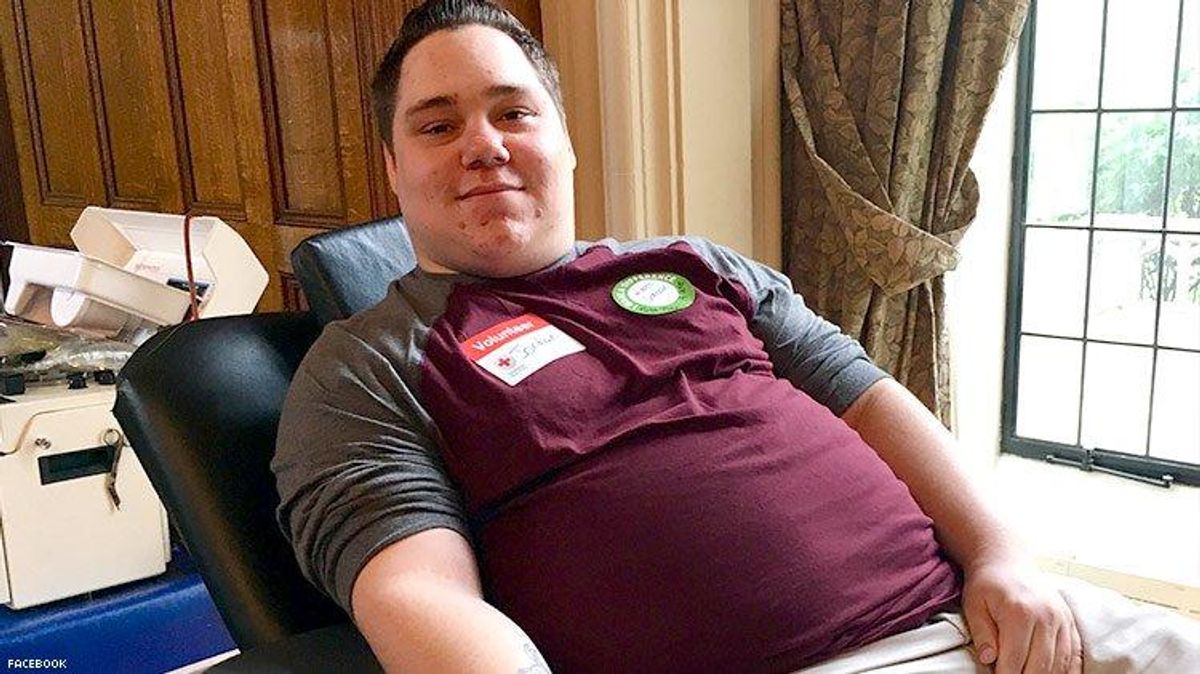All Rights reserved
By continuing to use our site, you agree to our Privacy Policy and Terms of Use.
A gay man in Buffalo, N.Y., stayed celibate for 12 months before donating blood Wednesday.
Jordan Moll-Vigrass, 22, gave blood at the Gay Alliance Blood Drive at the American Red Cross headquarters after a year of abstinence from sex, as per the Food and Drug Administration’s policy on blood donations from gay and bisexual men. Prior to 2015, the FDA had banned blood donations from gay and bisexual men altogether.
Despite the loosening of these restrictions, Moll-Vigrass said that gay and bisexual men face many problems regarding blood donations.
"This past year has been really hard," Moll-Vigrass told Buffalo public radio station WBFO. "Remaining celibate or asking anyone to remain celibate is very hard, especially someone at 22 years old. I’ve had to cut off relationships and things like that so I wouldn’t get put in a predicament where I would ruin my year of celibacy."
His year-long period of celibacy is part of his larger mission to raise awareness about the FDA’s policy regarding blood donations from gay and bisexual men. In 2015, he had volunteered to donate blood, but was turned away after he admitted he had had sex with another man. After this experience, he founded the organization Blood Is Blood, which aims to "encourage the FDA to seek and implement blood donation policies that are non discriminatory towards the Gay & Bi-sexual community."
Specifically, Blood Is Blood wants the questionnaire and screening process for blood donations to be changed.
According to the Centers for Disease Control and Prevention, donors are screened for risk of transmittable diseases through a questionnaire -- it’s up to the donor to answer the questionnaire truthfully. If the donor is not deemed a risk because of their answers on the questionnaire, they can donate blood. The donated blood is tested for blood type, Rh type, and infectious diseases like HIV -- the very infection for which gay and bisexual men face an increased risk.
But the screening of blood for HIV and other infections makes the restrictions on donations by gay and bi men unnecessary, activists argue. In addition, there are more ways to prevent sexual transmission of HIV than ever, such as pre-exposure prophylaxis and treatment as prevention.
The FDA calls for a 12-month deferral period not only for gay and bisexual men, but also for women who have had sex with them.








































































